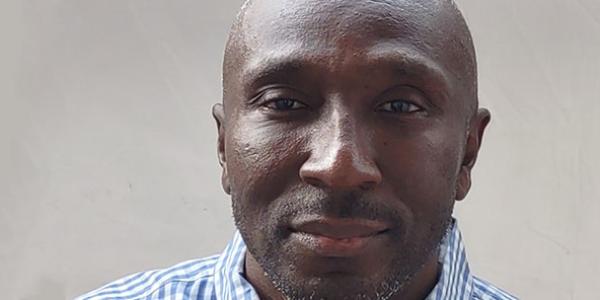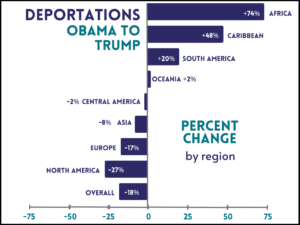
Samuel Anthony, photo courtesy of NIJC
“There was nothing but darkness. And you just know that everything’s over. It was like being placed in a coffin. But you’re still alive.” – Samuel Anthony, deported to Sierra Leone after living in the U.S. for over 40 years
Petula Devorak, a columnist at the Washington Post, published a stirring piece about Samuel Anthony’s quest to return to his life and family in DC after being deported in 2019. Anthony is part of the National Immigrant Justice Center’s “Chance To Come Home” campaign.
His experience is both tragic and exceedingly common, if you read “Broken Hope: Deportation and the Road Home.” It’s also the type of immigration story we rarely see in the media, although Devorak is helping to change that.
Following are excerpts from Devorak’s column, but you must read the entire piece. And remember that deportation is a human-made decision. That means humans—policymakers within the Biden administration and Congress—have the power to undo it. Hear from Anthony directly and read about him on NIJC’s Chance to Come Home website.
Excerpts from “Deported to Sierra Leone, he lost everything. He’s fighting to return.” by Petula Devorak, Washington Post, February 29, 2024.
To the Department of Homeland Security, Anthony is just one of 359,885 people deported from the United States that year.
To the family he left behind, he’s a man of promise, taken. Imperfect, as we all are. But in a national moment of reconsideration for those who’ve paid their dues, his loved ones say he never truly got a second chance….
Deportations to African increase 74% under the Trump administration.
He did everything our system asked of him. He checked in regularly, got a job running a stock room at a grocery store, drove Ubers and started getting his commercial driver’s license. He bonded with his daughter and was the sibling who always checked in on mom. He bought a newly constructed townhouse in a revitalized section of Deanwood.
“Samuel was all about D.C.,” his sister said. He loved go-go music and the mom-and-pop joints around town. “He was making up for the time he lost in prison, spending a lot of time with family.”
He began a nonprofit mentoring teens who flirted with the life he left behind. But even living straight, he always felt scrutinized and endangered….


